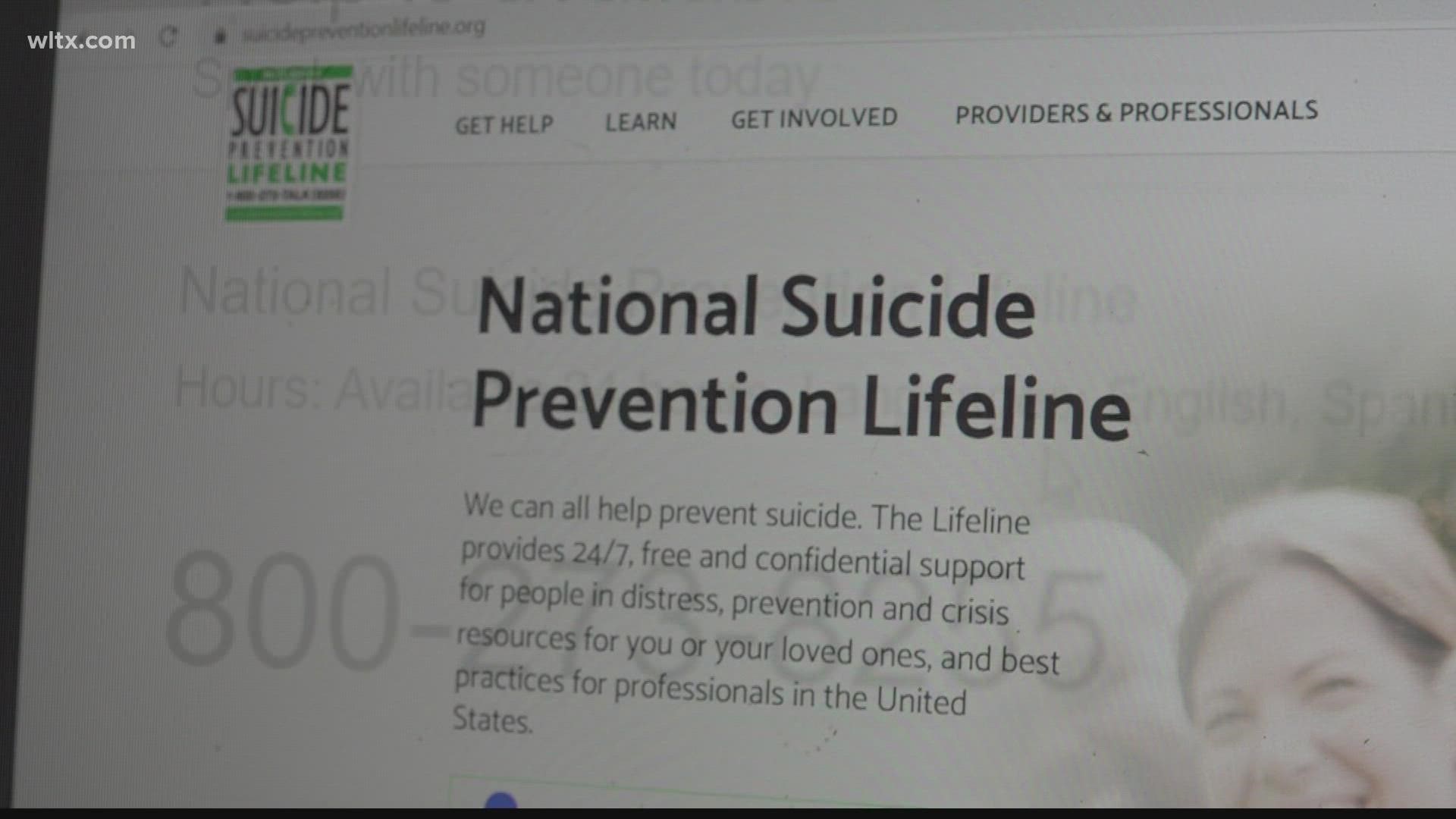COLUMBIA, S.C. — Starting July 16, people in a mental health crisis will be able to dial 9-8-8 to reach the National Suicide Prevention Lifeline hotline.
Natalie Fouty is no stranger to mental health issues.
"I've struggled with depression, anxiety, ADHD myself as well as having times when life was really hard," said Fouty.
Despite having suicidal thoughts, she never called the Suicide Prevention Lifeline.
"When I was in need, I couldn't remember the number, and it requires a lot of forethought and executive function and things when we’re in that moment, we don’t have access to," said Fouty
Getting help will soon get easier. The free 988 mental health hotline will be there for those struggling with anxiety, depression or thoughts of suicide.
"It's a way to get people help, that may have not gotten help previously," said Director of the National Alliance on Mental Illness South Carolina Bill Lindsey.
In 2019, the lifeline received 30,000 calls from South Carolina. Right now, the state only has one call center, which is run by Mental Health America in Greenville County.
"80% of those calls that come in can be handled on the spot by a trained professional," said Lindsey.
He said the goal is to answer 100% off calls, but funding issues and staffing shortages have gotten in the way.
"If you're in a mental health crisis, you don't want to be on hold at all. You want some answers right away," said Lindsey.
Lindsey said calls that are not immediately answered are transferred to another state. "If it's in another state, they may not have access to the resources that we have in our state," said Lindsey.
RELATED: Yes, the suicide prevention lifeline is changing to 988, but the old number will still work
Lindsey expects the call center to see a significant increase in calls when 988 launches.
"Because you have a three digit number, the call volume is going to increase maybe four or five fold," Lindsey said.
To support the increase, state lawmakers have approved $1.3 million in the state budget to fund a second call center in Charleston, which Lindsey expects to be up and running in six to nine months. However, lawmakers failed to pass legislation to create long term funding to support the call centers.
"The bottom line is for it to be sustainable, the state will have to have to pony up and and carry the weight to keep it going forward, just like they did with 911," said Lindsey.
Fouty, who is now the executive director of Key Changes Therapy Services, wants people to know seeking help is a sign of strength.
"It’s important to remember nobody is immune to mental health struggles," said Fouty. "We all face it in one way shape or another and there’s nothing weak about seeking help."
South Carolina's Department of Mental Health is seeking additional funding to staff and fund call center capacity, but also the crisis service infrastructure to treat the person who calls for help.
South Carolina currently has one mental health crisis stabilization unit. According to Lindsey, four more units will be opening soon, including one in the greater Columbia area.

